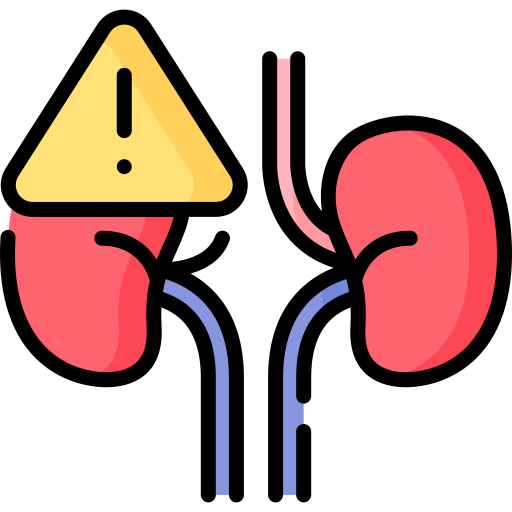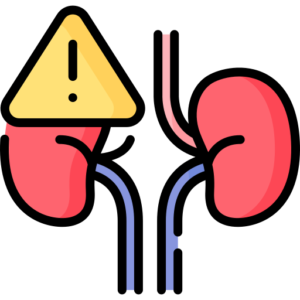Description:
The Kidney Function Test (KFT) with Electrolytes is an enhanced version of the standard KFT that includes the measurement of electrolytes such as sodium, potassium, chloride, and bicarbonate. This test provides a comprehensive evaluation of kidney health and its ability to maintain the body’s electrolyte balance.
Purpose of the Test:
•Assess kidney health: Detects kidney diseases like chronic kidney disease (CKD), acute kidney injury, or nephritis.
•Evaluate electrolyte balance: Identifies imbalances caused by kidney dysfunction, dehydration, or metabolic conditions.
•Monitor treatment effectiveness: Tracks the impact of treatments like dialysis, medication, or fluid therapy.
•Aid in diagnosing conditions: Helps in identifying conditions like renal tubular acidosis or hyperkalemia.
Common Components of KFT with Electrolytes:
1.Serum Creatinine: Indicates kidney filtration efficiency.
2.Blood Urea Nitrogen (BUN): Measures the level of urea in the blood.
3.Uric Acid: Evaluates waste removal from the body.
4.Electrolytes:
•Sodium (Na): Regulates water balance and blood pressure.
•Potassium (K): Essential for nerve and muscle function.
•Chloride (Cl): Maintains acid-base balance.
Key Notes:
•Electrolyte imbalances can indicate dehydration, overhydration, or hormonal imbalances affecting kidney function.
•Abnormal results may prompt further tests or interventions like dietary modifications, medications, or imaging studies.







Reviews
There are no reviews yet.